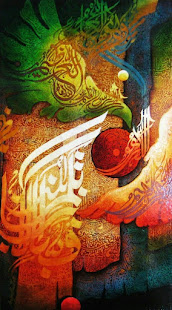Is Atheism Possible? Understanding God as Beauty or Beauty as a Proof of God

Is there an atheist in the sense that he denies not a particular model of the divine but the Sacred as such? No. No sane and intelligent man has ever been one. An atheist denies God as the Ground of Being or Power to be, as Creativity and as Beauty. Let us try to understand one of the aspects of the Sacred as Beauty that no atheist can afford to deny. There are degrees of tawhid and the atheist may well be in a lower rung but a degree he does possess. This is what easily follows from comprehending the traditional metaphysical doctrine of God as Reality. Ibn Arabi argued for it. Let us explore less abstruse ways of appreciating impossibility of being an atheist in the sense of denial of Sacred embodied in the Mystery, Wonder and Beauty and especially focus on the last mentioned. Mircea Eliade, one of the most distinguished scholars of religion, has explained how man is a worshipping animal or Homo sapiens is Homo religiosus: …“sacred” is an element of the structure of conscious
